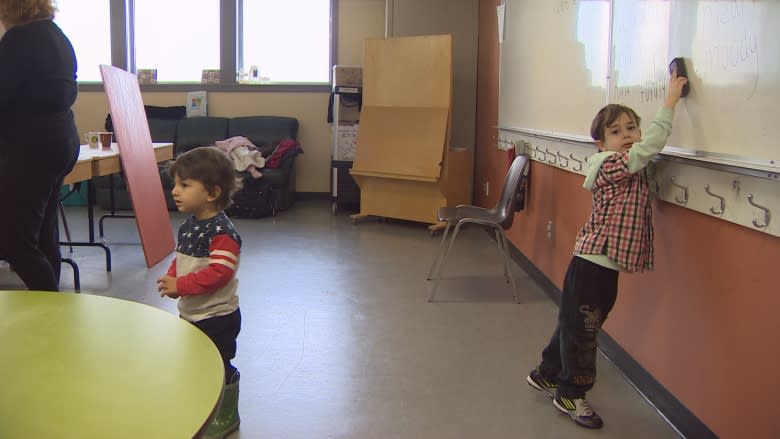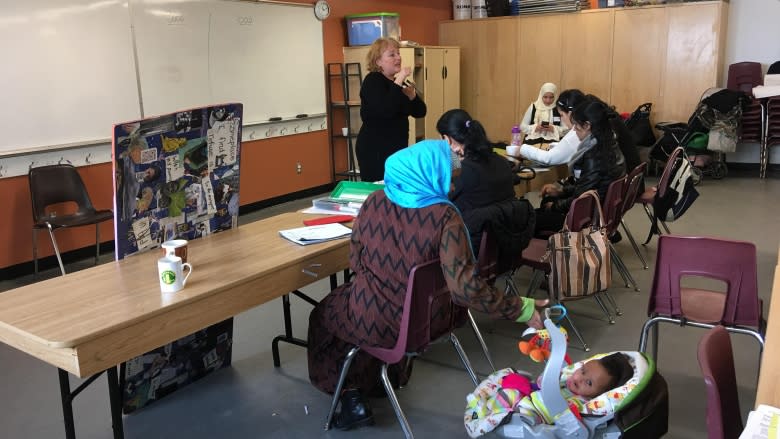Women-only English program in Metro Vancouver hopes to expand
A unique English program for immigrants and refugees in Metro Vancouver is hoping to expand after finding success with women-only classes where participants can also bring their children.
The focus is not just on language, said teacher Diana Jeffries, but also on supporting mental health.
"So learning the language through taking care of yourself … making connections through community, through working together in this classroom."
Unlike federally funded language programs like Language Instruction for Newcomers to Canada (LINC), there are no eligibility requirements or tests to join the Pacific Immigrant Resources Society's community English classes for refugee women.
"We're different in that we're trauma informed, that we allow young children in the classroom, we don't have the same kind of assessment processes the LINC has," said program director Amea Wilbur.
"We are specific to women and also we can be a lot more responsive in terms of curriculum."
The program is open to refugees and immigrants from any country.
"It's very helpful — especially for the women who have small kids. They have daycare for the small babies, which the other classes didn't have it."
Some federally funded classes do provide child minding for children, but they usually have to be 18 months or older.
Outreach worker Zarmina Ali said some of the women have never stepped foot in a classroom before arriving in Canada.
"This program is very important for them because most people haven't been at school in their life — this is the first time they come to school and they enjoy it so much."
Sharing stories of loss
Jeffries said the supportive environment in the class has given students the confidence to share their stories of loss and struggle.
"[They talk about] the era of the Taliban and wearing burkas," she said.
"And experiences of great loss, family members, of even children. They carry around a huge weight of their past but [they are] just looking to Canada as an opportunity for a better future for themselves and their children."
Wilbur created the program after witnessing a gap in services for newcomers.
She said strict attendance guidelines and curriculum are some of the barriers that prevent women from enrolling in the federally funded classes.
"There's a real focus on getting employment for the men ... but then the women are the primary caregivers and can become more and more isolated," she said.
"It's so important for them to make the connection to the broader community — not just for themselves, but for their families and their children."



